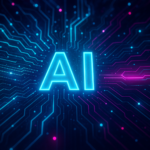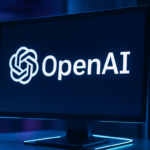As GenAI surpasses the two-year mark since ChatGPT’s initial boom, the early excitement fades, giving way to a more realistic examination of its role in the tech landscape. Such transitions are natural in tech cycles, mirroring past innovations’ trajectories. As GenAI becomes integral to business strategies, its influence stretches from small applications to broad organizational impact. While media stories pivot to question its value, tangible benefits reported by businesses challenge these narratives, demonstrating that GenAI’s story is far from over.
Looking back, technological innovations have consistently faced skepticism during their maturing phases. Just as early internet users experienced initial disillusionment, GenAI is scrutinized for its unproven potential. Yet, past tech giants like Google (NASDAQ:GOOGL) had humble beginnings before becoming indispensable. This context suggests GenAI may similarly transform perceptions as its capabilities unfold.
Will the C-Suite Back GenAI Adoption?
The outlook among top executives is increasingly optimistic, driven by substantial returns on investment. Insights from the CAIO study that tracks executive interactions with GenAI reveal that most CFOs acknowledge significant returns from GenAI technologies. As its applications span risk management to decision-making enhancements, GenAI finds champions in C-suites who leverage it for strategic gains.
Does the Investment Reflect Continued Confidence?
Increasing enterprise spending on GenAI underscores confidence, with investments venturing beyond experimental use to essential business operations. This commitment reiterates GenAI’s utility in redefining organizational infrastructure. As CFOs advocate for GenAI’s strategic potential, they contribute to an evolving business narrative where skepticism transforms into sustained engagement.
The transition from simple prompts to sophisticated agentic systems signals GenAI’s promise in managing complex tasks autonomously. Projections for enterprises adopting these systems indicate a shift towards more dynamic interactions between humans and AI. This evolution resonates with historical patterns of tech integration, where gradual adoption leads to transformative applications.
Platforms like Google have laid groundwork for AI developments, compelling industry players to adapt swiftly. GenAI’s rapid progression into everyday applications suggests it continues to disrupt traditional paradigms without requiring foundational reinventions. Rather than signaling the end, these developments indicate a sustained trajectory of innovation.
Critics predicting a stagnation fail to consider GenAI’s accelerating influence in modern enterprises. Its ability to leverage existing digital frameworks while extending capabilities marks a departure from previous tech advancements that demanded more foundational shifts. This evolving landscape encourages optimism for GenAI’s future role in reshaping industries.
As organizations rapidly integrate GenAI into core functions, its honeymoon period evolves into a durable partnership, laying the foundation for continued technological growth. Business leaders recognize GenAI’s potential to drive efficiency and innovation, underscoring a readiness to embrace its possibilities beyond initial disillusionment.










